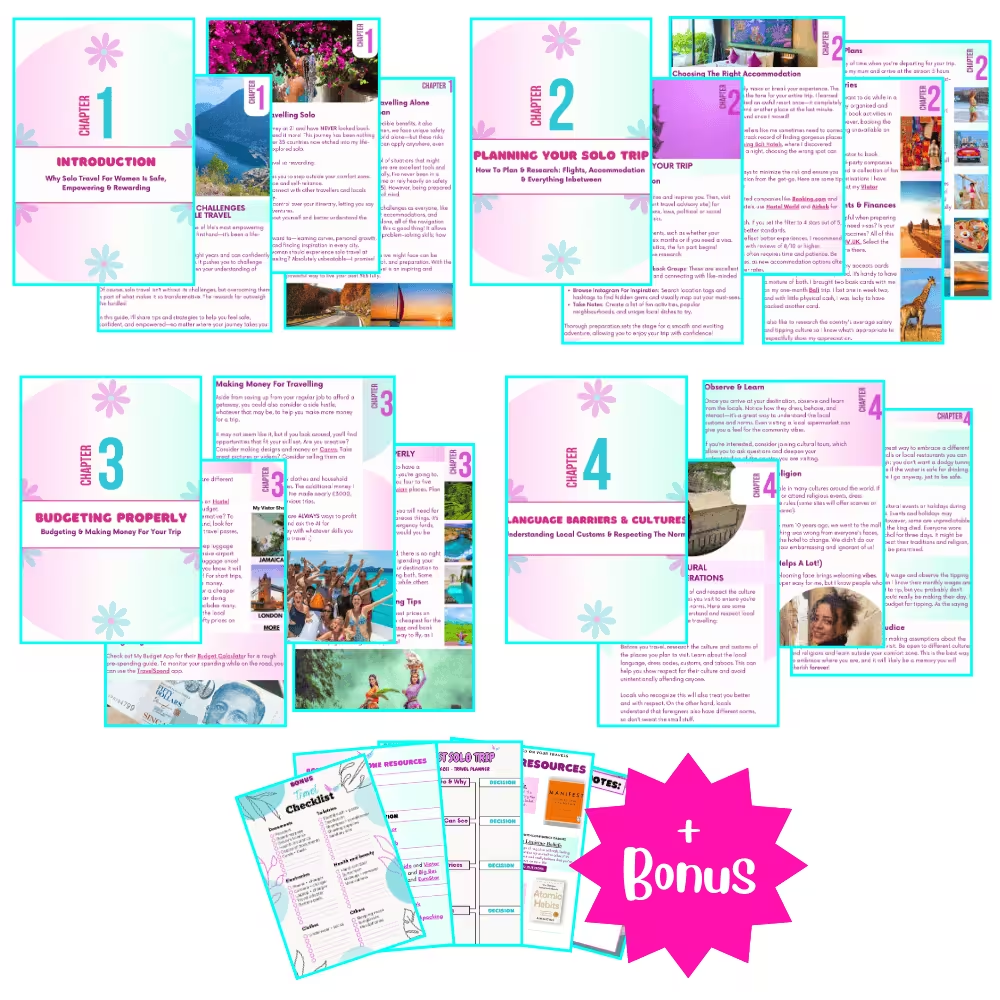Overpacker Or Underpacker?
Packing for a holiday, let alone a long-term travelling experience, can be tricky. Everyone has their must-haves or should-haves. I’ll tell you what I packed to travel to New Zealand for a year (which turned into two-and-a-half years of travelling) on a Working Holiday Visa and give you tips on the things I wish I had known beforehand to pack for this long-term travelling experience.
In this blog, I’ll guide you on utilising your current belongings, determining essential items to own, and optimising your resources for efficient packing. Preparing for long-term travel may seem daunting, but packing for extended journeys is more straightforward than it looks, and I’ll elaborate on why.
If you’re looking for a quick getaway instead, read Tips For Your Mini Getaway.
Long-Term Travel: Backpacks Vs Suitcase
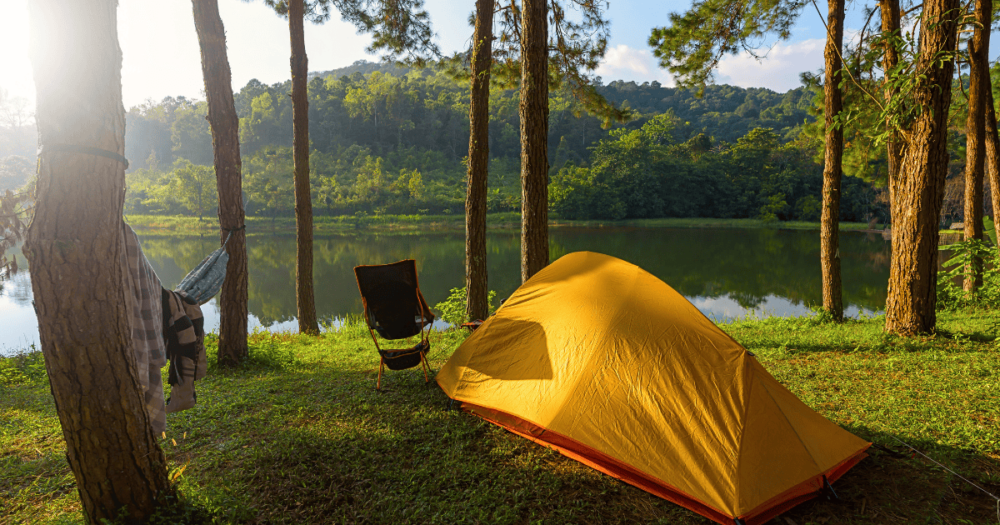
You wouldn’t pack a suitcase for a camping trip!
First, ensure you have the right bag for your long-term travelling trip. Some people prefer suitcases, while others prefer backpacks. If you plan on moving around often during your long-term travelling experience, backpacks are generally easier to move around with.
On the other hand, if you plan to stay in a location longer, a suitcase may be more appropriate. Suitcases also tend to be cuter than backpacks—especially those that come as a Travel Set. I prefer a backpack, though, because I like to walk freely without using my hands to pull big suitcases—the joys of travelling. Nevertheless, both backpacks and suitcases are essential packing accessories, so choose your gear wisely.
There are different backpack sizes to choose from. For my first long-term travelling trip, I went with a 45L backpack and a small suitcase, but I’ve now upgraded to an 85L backpack, perfect for packing everything I need.
Basic Items To Pack
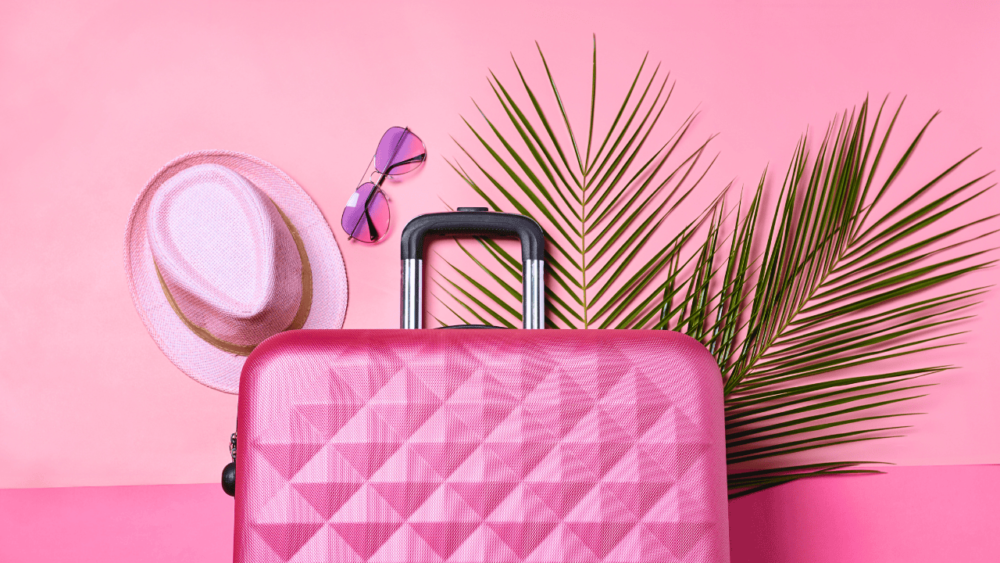
Try not to pack for more than two weeks’ worth of items unless it’s an essential product
Knowing I was going for at least one year, I had to ration what I packed and take essentials. Jackets and coats take up a lot of bag space, so decide if you’ll need one immediately or later in your travels when you need it. I typically opt for a raincoat as it is lighter to pack. Other bits like sandals can also be purchased on the other side. This is the rough amount of items I packed:
You might think you need more clothing, and maybe you do, but remember, minimisation is vital! You’ll usually be able to find clothes anywhere. Also, you’ll likely do laundry runs at least once a week while on your long-term travelling trip, so don’t worry about not packing enough. Two weeks’ worth of clothes is more than enough.
If you decide not to pack any items, check out my Making Money guide to make money off them instead. It’s worth it! Here’s a tip: if you get bored with an item while you’re away, swap it out for something new—buy a new item while removing the equivalent from your bag.
Grooming Essentials
We’ve all got different requirements, so adjust your grooming essentials accordingly.
Hair products: Getting hair products in specific destinations is challenging if you have afro-textured hair. Seriously. When I lived in Thailand, my poor hair struggled until I figured out a product that worked for me. Depending on how much hair product you use, I would pack a few months’ supply and search for other products while you’re out there. Remember, you are limited to 100ml when taking hand luggage, so stick it in your main luggage if you have a check-in bag.
Makeup: Your standard makeup bag is fine. If you’re travelling to a hot destination such as Asia, you’ll likely wear minimal makeup as you’ll probably sweat it off. As you develop a tan, you’ll be eager to showcase that radiant glow. Nevertheless, if you still prefer wearing makeup, I suggest stocking up on a foundation with a few darker tones to match your tanned skin.
Washbags: You won’t need to stock up on additional items; your standard washbag will do. Most countries sell the items you use daily, so once your product is near finishing, go to the local store. Remember to bring a nail clipper, tweezers, and a small pair of scissors – they usually come as a set.
Essentials: Not all countries have the same or similar sanitary items as the UK. Bring tampons (or your preferred sanitary item) for caution in emergencies. Hygienic products are available in many places; however, when I was in Dubai and Morocco, I could not find tampons anywhere! I assume it’s for cultural reasons. If you find yourself in this situation, I recommend searching for them at a hotel shop instead of a regular local shop, as hotel shops typically cater to tourists.
Other Items To Consider
Tablets: Whether it’s medication, paracetamol or hayfever tablets, having these in your bag will be handy if needed. Sometimes, these tablets can cost more abroad, so pack them.
Battery Pack: Trust me, it’ll be worth it. Speaking from experience, you don’t want to be lost in the middle of nowhere because you weren’t prepared. It’s worth the small investment for an extra digital lifeline. A battery pack saves me every time.
Small Bag: Having no pockets is annoying when you only have your big backpack or suitcase. You will need a small bag for quick access or when you go on tours or other adventures, where you can put your keys, phone, battery pack, bottled water, etc.
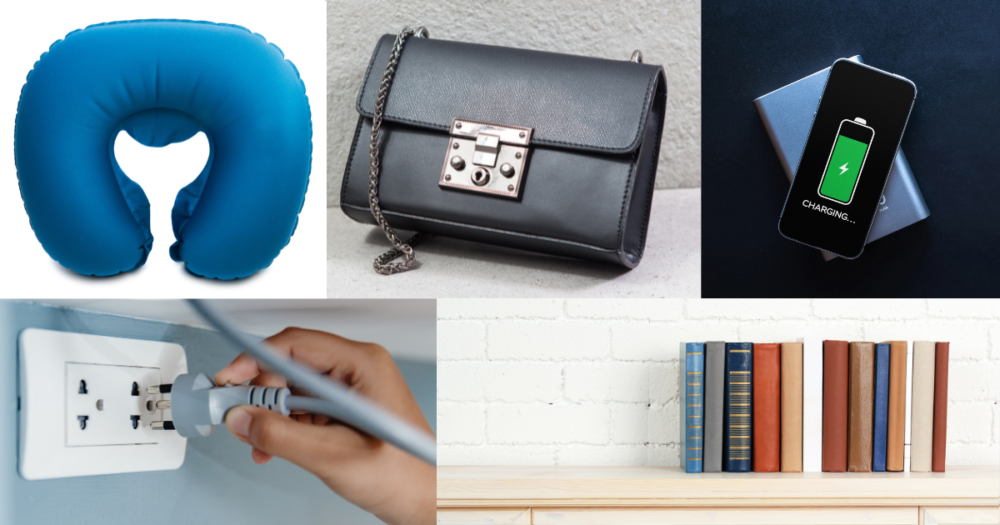
Essentials to consider bringing with you
Travel Headrest: Although it is not essential, it’s a game-changer. Say goodbye to awkward positions and hello to comfortable sleep. The travel headrest also doesn’t take up backpack space, as it can clip to the outer side of your bag.
Universal Plug Adaptors & Spare Phone Cable: Being in a country with no place to charge your electronics just because you forgot your universal plug adaptor is no fun! Neither is having your phone wire break on you. You’ll be able to find these in most destinations, but preparation is always better than cure.
Entertainment: Bring something to distract you from boredom during long trips, delays, or when you need entertainment. Maybe a pack of cards, a book, a notepad and pen, crosswords, or a Rubix cube?
These are most of the things you’ll need for your long-term getaway. You might be wondering what to do with all the other items you own. Let’s discuss that.
Travelling alone but feeling nervous? The How To Travel Solo Ebook has tips for planning safe, confident, and unforgettable adventures!
Items You Currently Own
So, you’ll have a choice whether to pack up all the stuff you own or leave your stuff remaining wherever you reside. When I decided to travel, I was fortunate to have the option to store items at my mum’s home if needed. However, I opted for a total room clearout.
Instead of having ‘stuff’ lying around, especially when I believed that the future was filled with spontaneous opportunities, everything was packed up. This was a great decision, as the plan had been to travel for one year, but home was not returned until over two years later!
Don’t worry about having too many items to go through yet. Just bringing all your items to one place is a start. Now, select your essentials. I ended up with about 25% of my items classified as essentials.
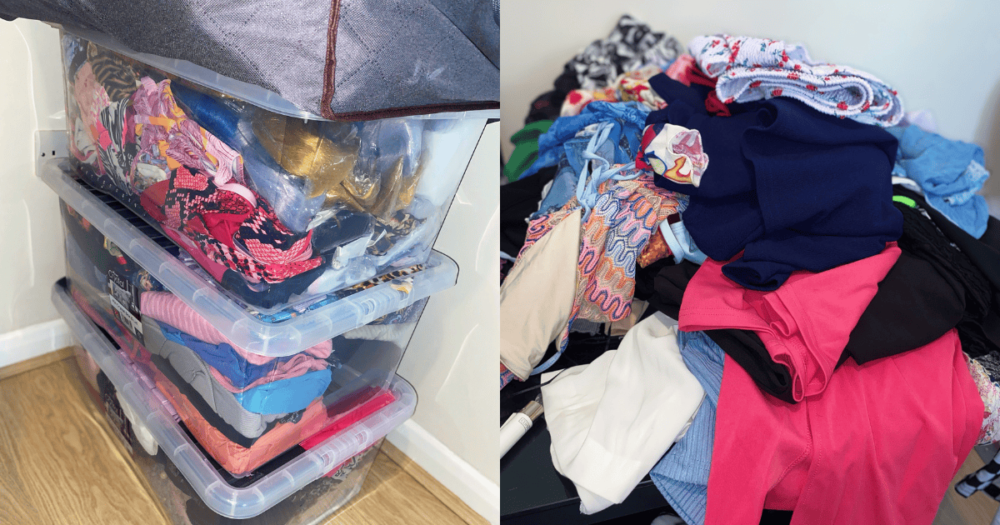
Dividing into sections to help organise myself better before deciding what to do with the rest of the items
With the other 75%, I decided to sell, give to charity, or bin it. Here’s how I did it.
Sell Items
I took pictures of the items I wanted to sell and uploaded them to the Vinted, Depop, Shpock, and eBay apps. I’ve also written an article on tips and tricks for selling on Vinted. eBay was great for selling bundles, whereas Vinted was great for selling individual items, and Depop and Shpock were good for selling non-clothing items. Also, my brothers and I went to car boot sales a few times and managed to sell items there.
Give To Charity
Any items remaining that I had not sold when I was nearing my departure date were packed into bags and given to a local charity; anything you can donate is always appreciated!
Throw It Away
I threw away items that couldn’t be sold or given away, such as damaged or partially broken items. Surprisingly, I ended up with quite a few bin bags. I had been clinging to unused items all this time, and throwing those away felt good. Those items do not need to come abroad or remain with you; get them gone!
All Set For Your Long-Term Travelling Trip!
Now that you’re all packed and ready for your long-term travelling trip check out the GOV Site for travel and entry requirements for the destinations you are heading to, just in case anything changes.
Also, remember to get travel insurance! It’s one of the most important things you may need. Accidents can happen anywhere. If you’re unfortunate to have problems while you’re away, having travel insurance will give you peace of mind.
That’s A Wrap!
That’s a wrap for packing advice. Hopefully, this blog provided great tips to help you pack for your long-term travels. Pss…Make sure you pack your passport and remember…have fun! You only live once, and I’m happy you said YES to that trip of a lifetime! Enjoy!
Would you like to work during your long-term travelling experience? Check out what Working Holiday Visas are available.





